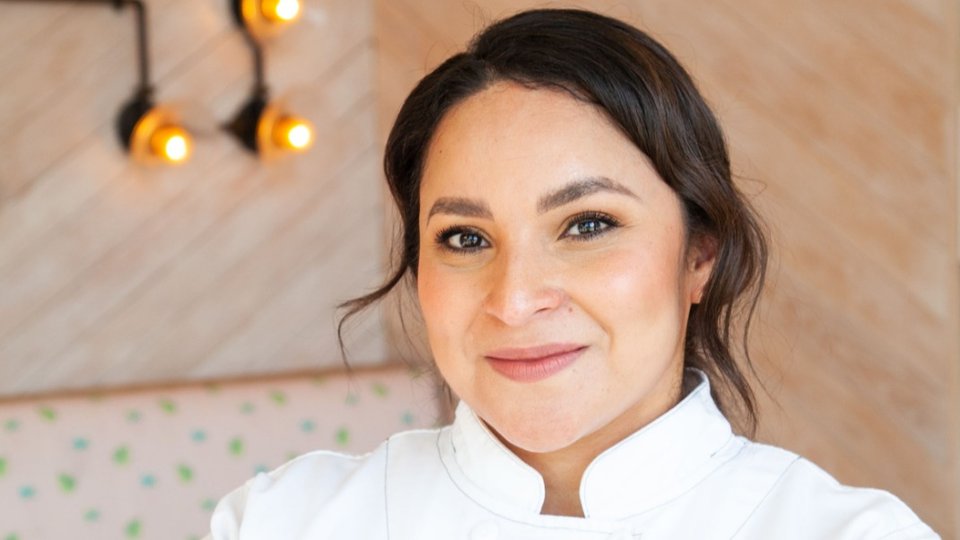Chef Chatter
How 1 chef maximizes sustainability efforts
Andrea Cuellar, culinary director of Sweetfin, reveals three ways restaurants can maximize sustainability.

June 16, 2022
By Andrea Cuellar, culinary director, Sweetfin
Traditionally, restaurants used to solely rely on their menus to attract customers. And while the overall cuisines and flavor offerings will always be important for restaurants, sustainability has emerged as a growing influence on consumers' preferences as they focus more on climate change and ways to improve the planet.
Much more than a buzzword, sustainability now plays an integral part in the decision when consumers are choosing where they would like to eat. If a customer is choosing between two similar restaurants, but one offers sustainable options, they are likely going to choose the one that is trying to help the environment.
According to Oracle's Restaurant Scene 2022 global survey, restaurant sustainability practices heavily influence buying decisions, highlighting the importance of creating a more ecological industry. By implementing sustainable practices, you're not only helping the planet, but you're also helping your bottom line.
Here are three tips for how you can improve your restaurant's sustainability strategy:
1. Add more vegetarian and vegan options.
Many livestock farming and fishing practices are damaging to the environment. Whether it's greenhouse gas emissions, ocean pollution, excessive water usage or water contamination, many consumers now have the impact of their choices on their radar. In addition to a growing consumer preference, producing more vegetarian and vegan options is a great way to help lower your contribution to these problems.
As more consumers are looking to switch to a plant-based diet, they are not only driven by the desire to improve their own health, but they are also worried about climate change and animal welfare. Therefore, by adding more vegetarian and vegan options, you'll attract more customers while also lowering your carbon footprint.
At Sweetfin, we always try to be as sustainable as possible. We don't just offer healthier menu options, we also have to consider how the ingredients are fished or farmed in ways that have less impact on the environment. That's why our culinary philosophy is centered around our
"Pole to Bowl" ethos. Our Yellowfin Tuna is wild-caught in the Indian Ocean and is certified "Dolphin Safe" by Friend of Sea. Our Salmon is responsibly raised in Faroe Islands from feed to production, and our Albacore is MSC certified and wild-line-caught off the Fijian Islands. And to take our sustainability efforts a step further, our shrimp is also sustainably sourced with a 4-star BP rating.
2. Use sustainable food packaging.
Due to the pandemic, takeout and delivery orders are skyrocketing. This creates an opportunity for your restaurant to implement sustainable food packaging. Consider using one of these three main types of sustainable food packaging for your orders: biodegradable, recyclable and reusable.
At Sweetfin, we use biodegradable packaging, including our bowls, boxes and bags. Even our water is packaged in boxes, therefore reducing plastic waste. Biodegradable packaging is great if you're looking for a single-use option because you don't have to rely on the customer to recycle, and it will disintegrate in a few weeks.
Recyclable packaging is good for dine-in customers, but not necessarily takeout or delivery because you can't guarantee that the customer will recycle the packaging. If you use recyclable packaging in your restaurant, make sure that you have plenty of recycling bins available for customers and staff to use.
Finally, reusable packaging is always a great option, especially for your staff and dine-in guests. Encourage your staff to use reusable water bottles in the office or restaurant. Take it a step further by creating reusable branded goods, like a drink cup. This is eco-friendly and can generate repeat business by encouraging customers to bring in their reusable drink cup for discounted refills.
Set clear standards with your vendors.
One of the easiest and most important steps towards implementing sustainable practices is executing clear communication with your suppliers. You have to ensure that your team and suppliers are aligned on your brand's goals. This goes for everything from packaging to food and beverages to furniture.
At Sweetfin, our suppliers know that we are committed to protecting the environment and want to go the sustainable route wherever possible. This means sourcing biodegradable bowls, reusable containers and boxed water. We want to do whatever we can to eliminate as much plastic and disposable packaging as possible. Sustainability has to be top of mind, not just for your business, but for your suppliers too.
Addressing global issues is a tall order for most restaurants. But for restaurants that are willing to implement sustainable practices in order to reduce their environmental impact, the results can be huge. It can improve your brand image, create customer loyalty and trust, and ultimately increase revenue. It's a win for everyone!
More From Chef ChatterMore
Included In This Story
Oracle
Oracle helps ambitious food and beverage providers transact in new ways, prioritize guests, and deliver great experiences. With Simphony Cloud, an open and extensible digital transaction platform, NetSuite for business management, and CrowdTwist for loyalty, thousands of operators worldwide automate operations and elevate personalized guest experiences with Oracle.
 ChatGPT
ChatGPT Grok
Grok Perplexity
Perplexity Claude
Claude












